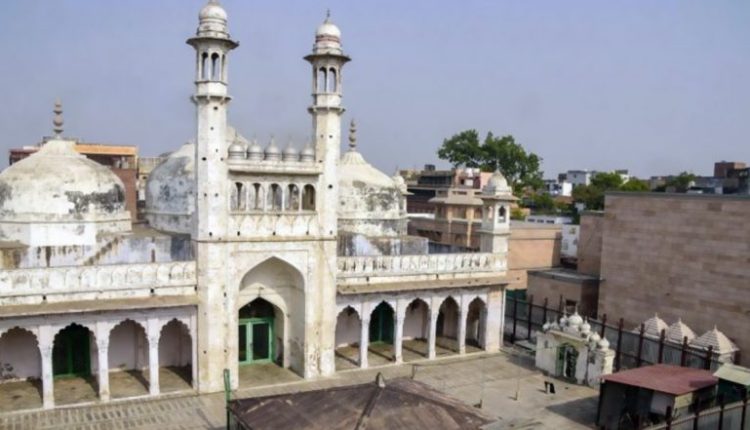Gyanvapi Mosque Case: Counsel for Hindu Side in Allahabad High Court, Says ‘Land Belongs to Temple Even After Demolition’
Prayagraj, December 8: In the Gyanvapi mosque case, the counsel representing the Hindu side on Thursday argued that even with the temple’s demolition at the site, the land does not lose its nature of being a temple land, and thus the Places of Worship Act does not apply in the case.
The submission was made in response to a petition relating to the suit seeking regular worship of Shringar Gauri and other deities in the mosque in Varanasi. The counsel said that the temple existed on the contested land much before the independence of India. Gyanvapi Mosque Case: Varanasi Court Rejects Masjid Committee’s Plea Challenging Maintainability of Suit Seeking Possession.
The Allahabad High Court will continue to hear on December 13 a civil revision petition of Anjuman Intezamia Masjid (AIM) that has challenged a Varanasi court order turning down its objections to the maintainability of the suit filed by five Hindu women seeking permission to worship in the mosque’s compound.
As per the date fixed, the hearing of the case was resumed on Thursday. However, after a brief hearing, Justice JJ Munir posted the matter on December 13 for further hearing. During the hearing, the Hindu side also argued that the Deen Mohammad case filed during the British period won’t apply in the present proceedings as no person from Hindu community was made a party in the said case. Gyanvapi Masjid Case: Varanasi Court To Hear Muslim Side’s Plea Seeking Rejection of Civil Suit’s Claims Today.
The Deen Mohammad case was filed to declare three tombs on the disputed site as waqf property. District Judge Varanasi had on September 12 dismissed the plea of AIM filed under Order 7 Rule 11 of Civil Procedure Code (CPC), challenging the maintainability of the suit filed by the five Hindu plaintiffs.
While rejecting the AIM’s plea, the judge had observed that the suit of the plaintiffs (five Hindu women) is not barred by the Places of Worship (Special Provisions) Act, 1991, the Waqf Act 1995, and the UP Shri Kashi Vishwanath Temple Act, 1983 as was being claimed by the AIM.
(This is an unedited and auto-generated story from Syndicated News feed, Today News 24 Staff may not have modified or edited the content body)


